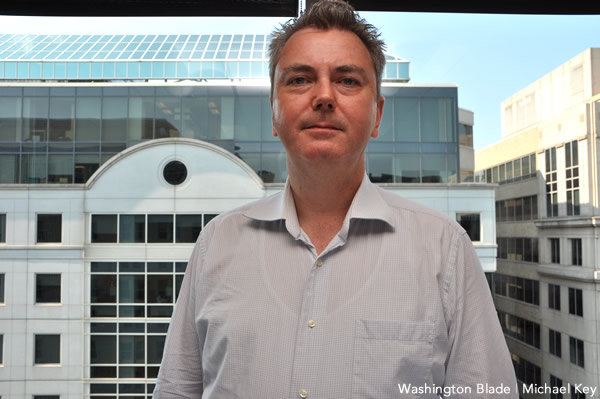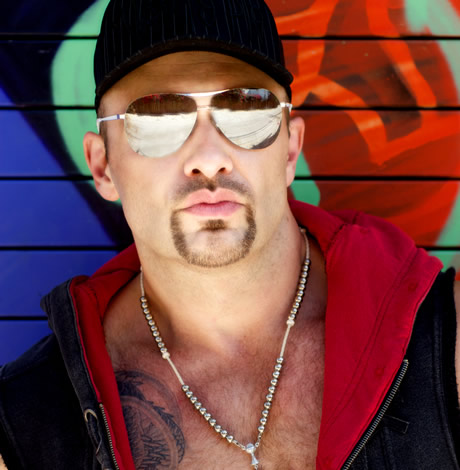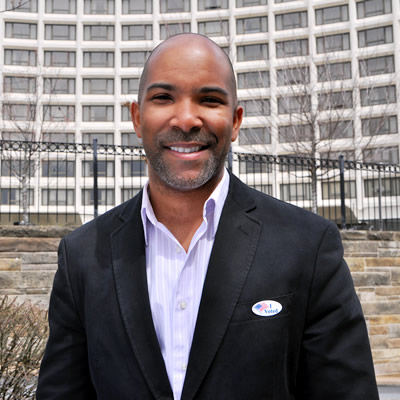Arts & Entertainment
Queery: Wayne Turner
The attorney and AIDS activist answers 20 gay questions
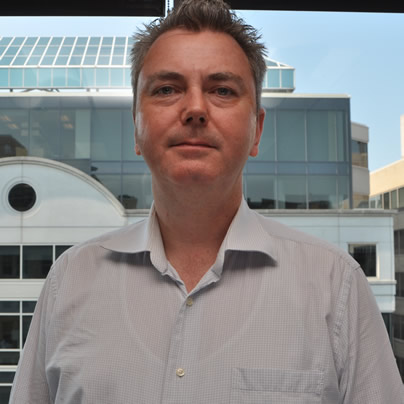
Wayne Turner remembers crying on the first day of school — although it was law school at UDC David A. Clarke School of Law and he was 40 years old that day in 2005.
“The founding professor, Edgar Cahn, was there telling us in this big orientation that their mission was to take bad-ass activists and unleash them on the world,” Turner says. “He said, ‘You’re not just here alone, you’re on the shoulders of everyone who’s come through here before.’ It was about seven years since my partner had died and I thought, ‘Yes, I have found my home.’ The tears just started streaming down my face so there I was, crying on the first day of school.”
Turner and his late partner, Steve Michael, who died of AIDS at age 42 in 1998 (Turner took Michael’s body to the White House as a gesture of protest), had what Turner calls a “roller coaster” seven-year relationship in which they dedicated themselves solely to activism and lived “a very hand-to-mouth existence. We were always changing residences, changing phone numbers. We lived a very mission-focused life and it was just like, ‘We gotta do this stuff.’ It was an issue nobody wanted to deal with.” Turner was a founding member of the AIDS advocacy and protest group ACT UP (AIDS Coalition to Unleash Power).
Turner, a Culver City, Calif., native, went to college in Portland, spent time in Europe, then lived in Seattle for about five years where he met Michael. They moved to Washington in 1993 with the express goal of “keeping Bill Clinton accountable” for his AIDS-related campaign promises.
Turner, who remains HIV negative, says going to law school — he earned full scholarships and graduated with honors — was perfect for him.
“I think of it as activism on steroids,” he says. “You gain so much clarity of how things work and how things are supposed to work. I highly recommend it to anyone who is active and involved. It’s like opening up a clock and saying, ‘Oh, that’s how that works.’”
Turner says he now has “his dream job” as a staff attorney at the National Health Law Program focusing on health care quality and access for low-income and disabled individuals enrolled in Medicaid.
He’s single, lives on the H Street corridor in Northeast Washington and enjoys camping and hiking with his dog, Mister, in and around Shenandoah National Park. (Blade photo by Michael Key)
How long have you been out and who was the hardest person to tell?
After the first year of college, my high school friend Robert and I came out to each other. We were just stating what was plainly obvious to each of us (and everyone else), but we had never talked about it before.
Who’s your LGBT hero?
My late partner Steve and the other amazing frontline AIDS activists, living and dead, who struggle and sacrifice so that others might live.
What’s Washington’s best nightspot, past or present?
Otter Crossing at the DC Eagle.
Describe your dream wedding.
One where DOMA has been overturned by the Supreme Court so that same-sex marriages are legally recognized by the federal government and in all 50 states.
What non-LGBT issue are you most passionate about?
Single payer health care. It means getting better care for less money from cradle to grave — what’s not to like about that?
What historical outcome would you change?
I wish Mario Cuomo went to New Hampshire in 1992. He would have won the primary, won the Democratic nomination and won the White House. We wouldn’t have had the disaster known as the Clinton administration with DOMA, DADT and the HIV immigration ban and travel restrictions. We might even have seen a Manhattan Project for AIDS, and could very well have a cure by now.
What’s been the most memorable pop culture moment of your lifetime?
Probably when Tinky Winky came out. I mean, we all knew, what with that red purse and all.
On what do you insist?
Punctuality
What was your last Facebook post or Tweet?
“YES WE CAN!” celebrating the Supreme Court decision upholding Obamacare. It is a huge victory, particularly for people with HIV who can qualify for Medicaid without having to wait for an AIDS diagnosis, and can’t be denied health coverage because of a pre-existing condition.
If your life were a book, what would the title be?
“Fasten your seatbelts,” because it has been one bumpy ride.
If science discovered a way to change sexual orientation, what would you do?
Find Ben Cohen.
What do you believe in beyond the physical world?
There’s something besides the physical world? I’ll believe it when I see it.
What’s your advice for LGBT movement leaders?
Too many so-called leaders seem to mistake photo-ops and cocktail party receptions for actual accomplishments. On-the-ground activists are providing the real leadership. Look at marriage equality — activists in Massachusetts propelled that issue forward in 2001 with Goodridge v. Dept. of Public Health. The national groups have been playing catch up ever since.
What would you walk across hot coals for?
Nothing. I have nice feet.
What LGBT stereotype annoys you most?
Victimhood. It perpetuates the perception that we are weak. Pity is no substitute for demanding respect and dignity.
What’s your favorite LGBT movie?
“Carrie,” the original with Sissy Spacek and Piper Laurie. It shows us that the best way to deal with high school bullies is to turn a fire hose on them.
What’s the most overrated social custom?
Saying “bless you” when someone sneezes. (See “physical world” response above).
What trophy or prize do you most covet?
Raphael Nadal.
What do you wish you’d known at 18?
That Apple stock would have been a really good idea.
Why Washington?
Sometimes at night I walk the dog around the Capitol. I’ll sit on the West steps and look out over the city, with stars and the moon and the Mall and the monuments and the glistening city lights, and I think “this view, at this moment almost makes up for the excruciating summer heat and humidity.” Almost. Actually, I really love D.C. I just wish I had a couple of senators and a representative.
Theater
José Zayas brings ‘The House of Bernarda Alba’ to GALA Hispanic Theatre
Gay Spanish playwright Federico García Lorca wrote masterpiece before 1936 execution

‘The House of Bernarda Alba’
Through March 1
GALA Hispanic Theatre
3333 14th St., N.W.
$27-$52
Galatheatre.org
In Federico García Lorca’s “The House of Bernarda Alba,” now at GALA Hispanic Theatre in Columbia Heights, an impossibly oppressive domestic situation serves, in short, as an allegory for the repressive, patriarchal, and fascist atmosphere of 1930s Spain
The gay playwright completed his final and arguably best work in 1936, just months before he was executed by a right-wing firing squad. “Bernarda Alba” is set in the same year, sometime during a hot summer in rural Andalusia, the heart of “España profunda” (the deep Spain), where traditions are deeply rooted and mores seldom challenged.
At Bernarda’s house, the atmosphere, already stifling, is about to get worse.
On the day of her second husband’s funeral, Bernarda Alba (superbly played by Luz Nicolás), a sixtyish woman accustomed to calling the shots, gathers her five unmarried daughters (ages ranging from 20 to 39) and matter-of-factly explain what’s to happen next.
She says, “Through the eight years of mourning not a breeze shall enter this house. Consider the doors and windows as sealed with bricks. That’s how it was in my father’s house and my grandfather’s. Meanwhile, you can embroider your trousseaux.”
It’s not an altogether sunny plan. While Angustias (María del Mar Rodríguez), Bernarda’s daughter from her first marriage and heiress to a fortune, is betrothed to a much younger catch, Pepe el Romano, who never appears on stage, the remaining four stand little chance of finding suitable matches. Not only are they dowry-less, but no men, eligible or otherwise, are admitted into their mother’s house.
Lorca is a literary hero known for his mastery of both lyrical poetry and visceral drama; still, “Bernarda Alba’s” plotline might suit a telenovela. Despotic mother heads a house of adult daughters. Said daughters are churning with passions and jealousies. When sneaky Martirio (Giselle Gonzáles) steals the photo of Angustias’s fiancé all heck kicks off. Lots of infighting and high drama ensue. There’s even a batty grandmother (Alicia Kaplan) in the wings for bleak comic relief.
At GALA, the modern classic is lovingly staged by José Zayas. The New York-based out director has assembled a committed cast and creative team who’ve manifested an extraordinarily timely 90-minute production performed in Spanish with English subtitles easily ready seen on multiple screens.
In Lorca’s stage directions, he describes the set as an inner room in Bernarda’s house; it’s bright white with thick walls. At GALA, scenic designer Grisele Gonzáles continues the one-color theme with bright red walls and floor and closed doors. There are no props.
In the airless room, women sit on straight back chairs sewing. They think of men, still. Two are fixated on their oldest siter’s hunky betrothed. Only Magdelena (Anna Malavé), the one sister who truly mourns their dead father, has given up on marriage entirely.
The severity of the place is alleviated by men’s distant voices, Koki Lortkipanidze’s original music, movement (stir crazy sisters scratching walls), and even a precisely executed beatdown choreographed by Lorraine Ressegger-Slone.
In a short yet telling scene, Bernarda’s youngest daughter Adela (María Coral) proves she will serve as the rebellion to Bernarda’s dictatorship. Reluctant to mourn, Adela admires her reflection. She has traded her black togs for a seafoam green party dress. It’s a dreamily lit moment (compliments of lighting designer Hailey Laroe.)
But there’s no mistaking who’s in charge. Dressed in unflattering widow weeds, her face locked in a disapproving sneer, Bernarda rules with an iron fist; and despite ramrod posture, she uses a cane (though mostly as a weapon during one of her frequent rages.)
Bernarda’s countenance softens only when sharing a bit of gossip with Poncia, her longtime servant convincingly played by Evelyn Rosario Vega.
Nicolás has appeared in “Bernarda Alba” before, first as daughter Martirio in Madrid, and recently as the mother in an English language production at Carnegie Melon University in Pittsburgh. And now in D.C. where her Bernarda is dictatorial, prone to violence, and scarily pro-patriarchy.
Words and phrases echo throughout Lorca’s play, all likely to signal a tightening oppression: “mourning,” “my house,” “honor,” and finally “silence.”
As a queer artist sympathetic to left wing causes, Lorca knew of what he wrote. He understood the provinces, the dangers of tyranny, and the dimming of democracy. Early in Spain’s Civil War, Lorca was dragged to the the woods and murdered by Franco’s thugs. Presumably buried in a mass grave, his remains have never been found.
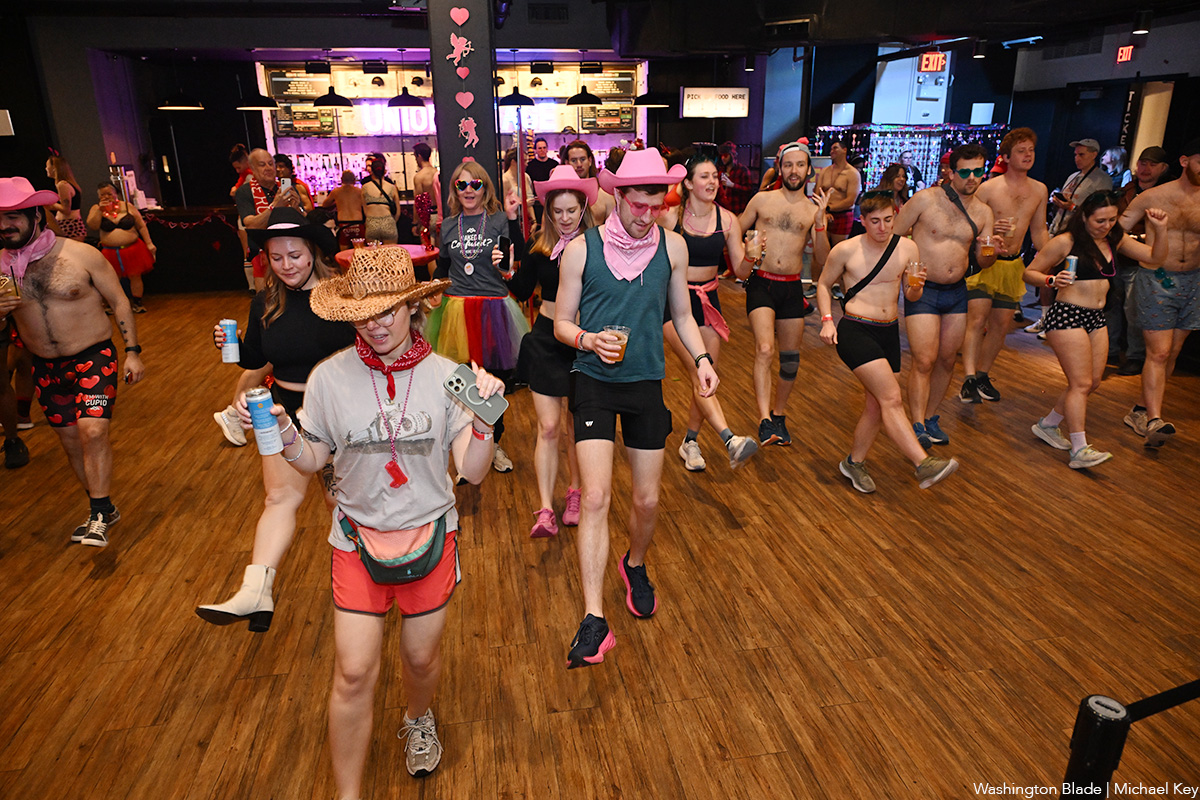
Cupid’s Undie Run, an annual fundraiser for neurofibromatosis (NF) research, was held at Union Stage and at The Wharf DC on Saturday, Feb. 21.
(Washington Blade photos by Michael Key)
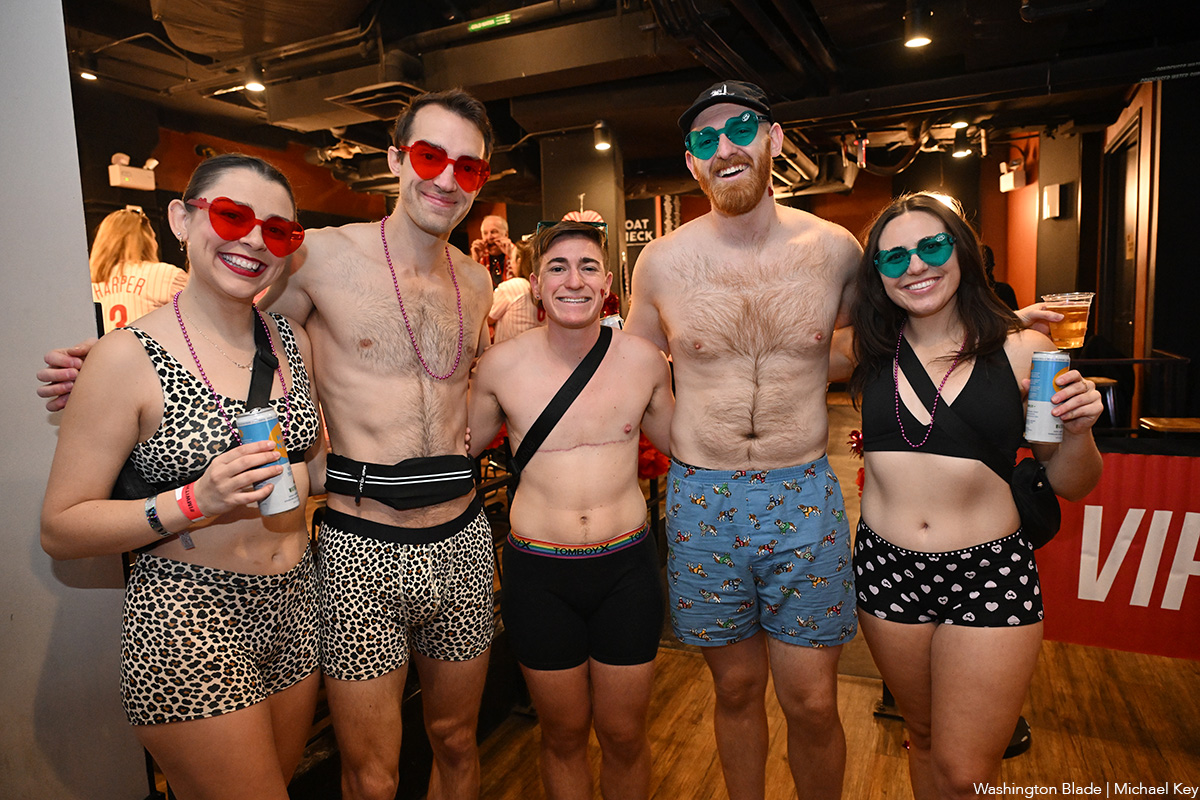
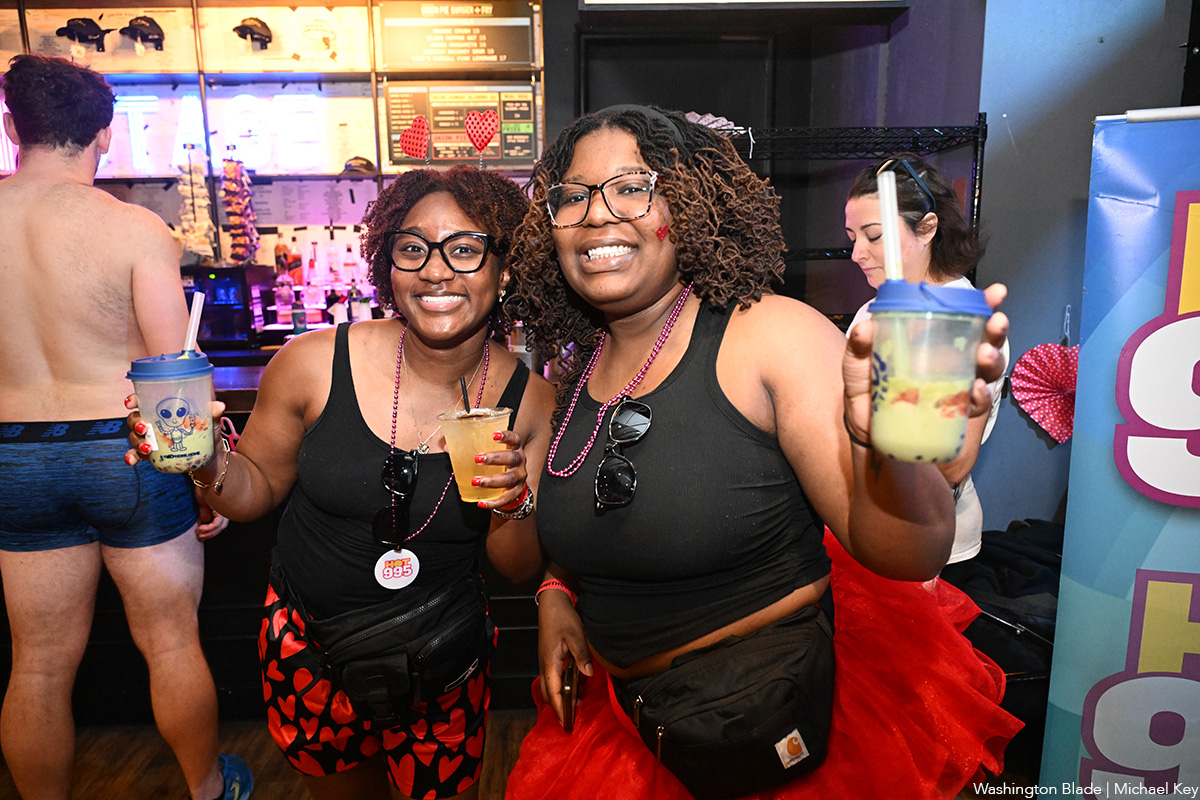
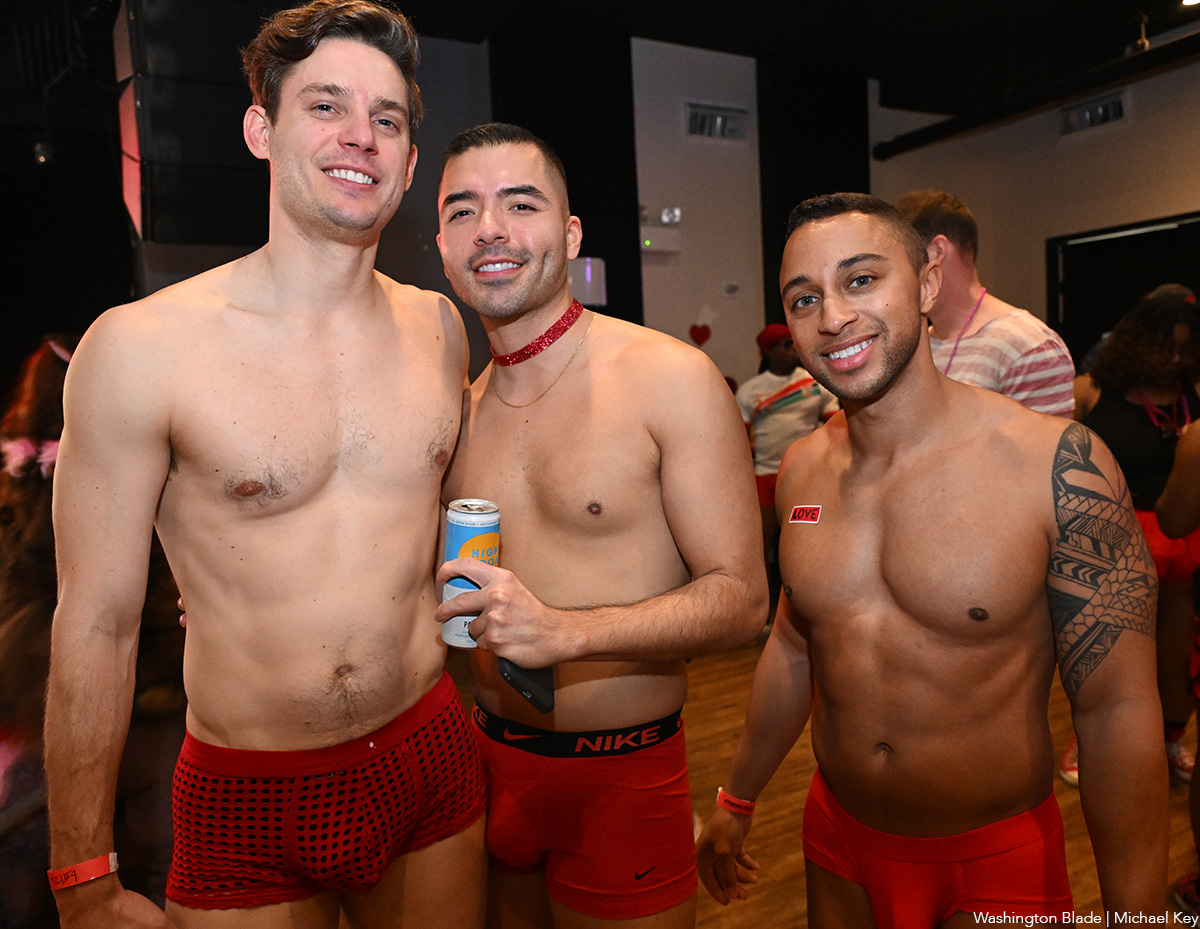
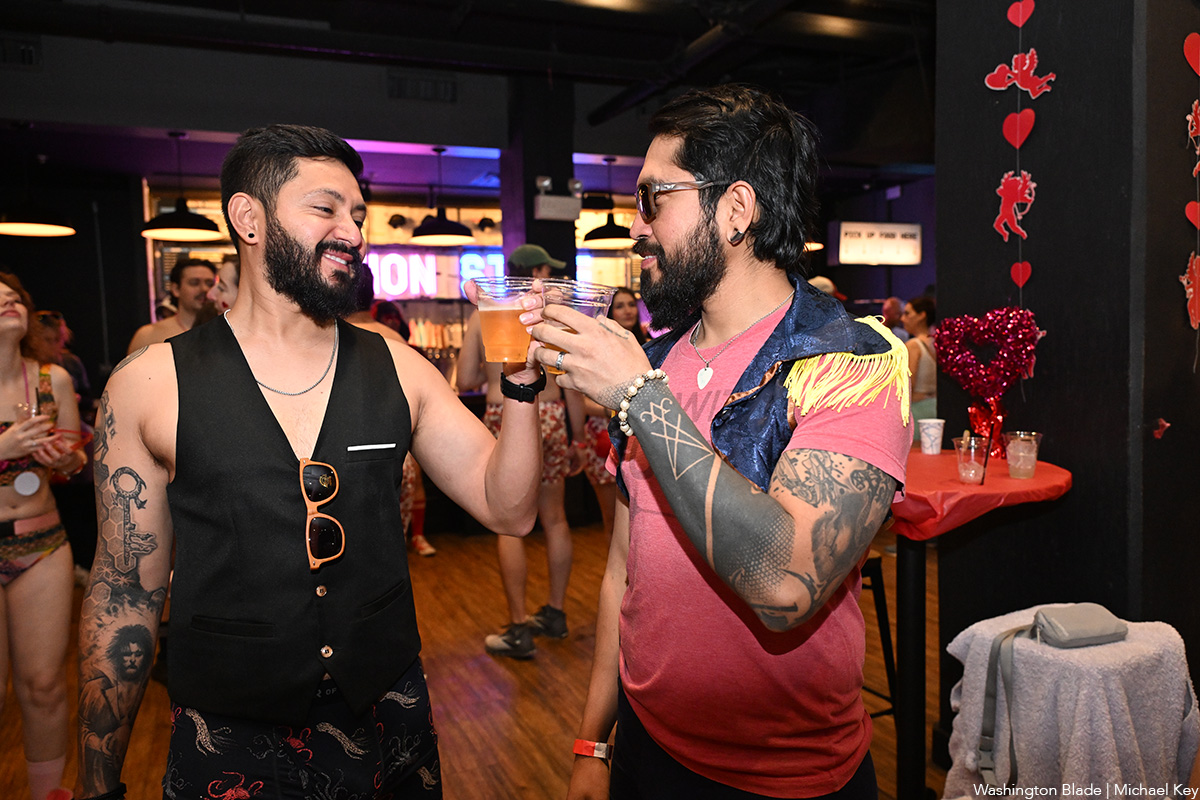
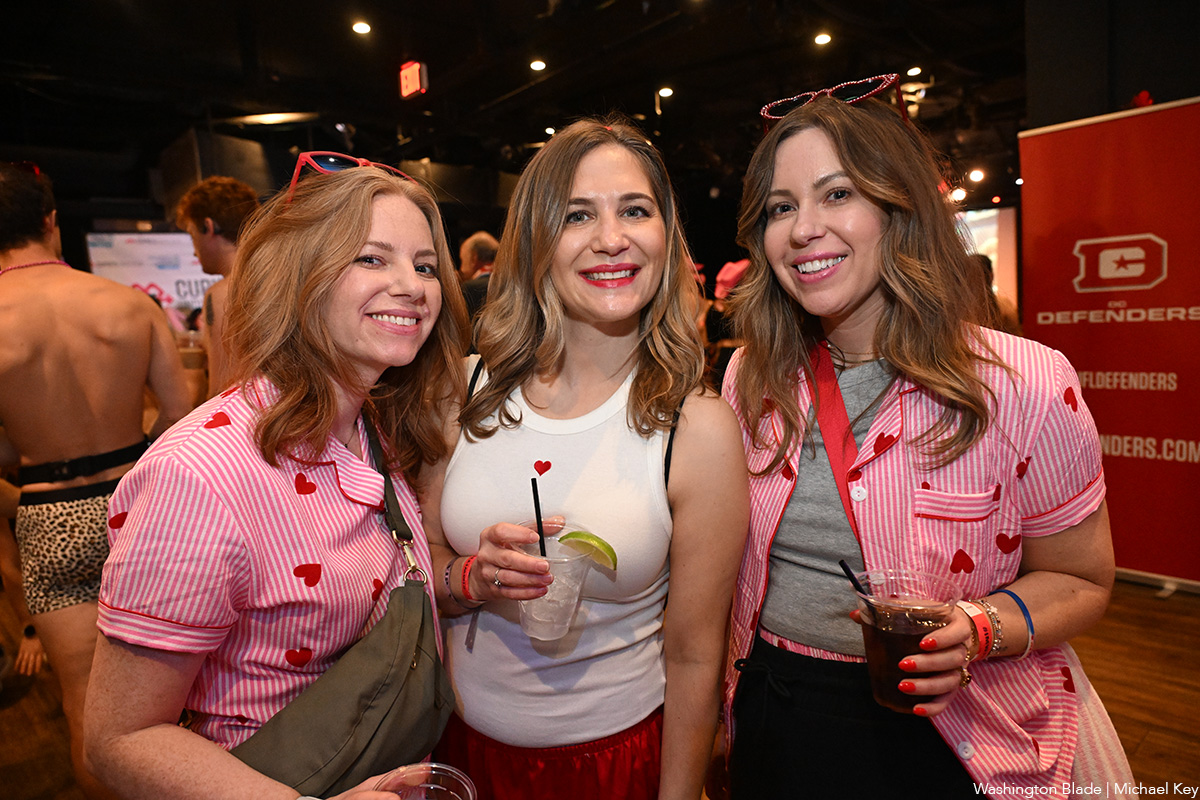
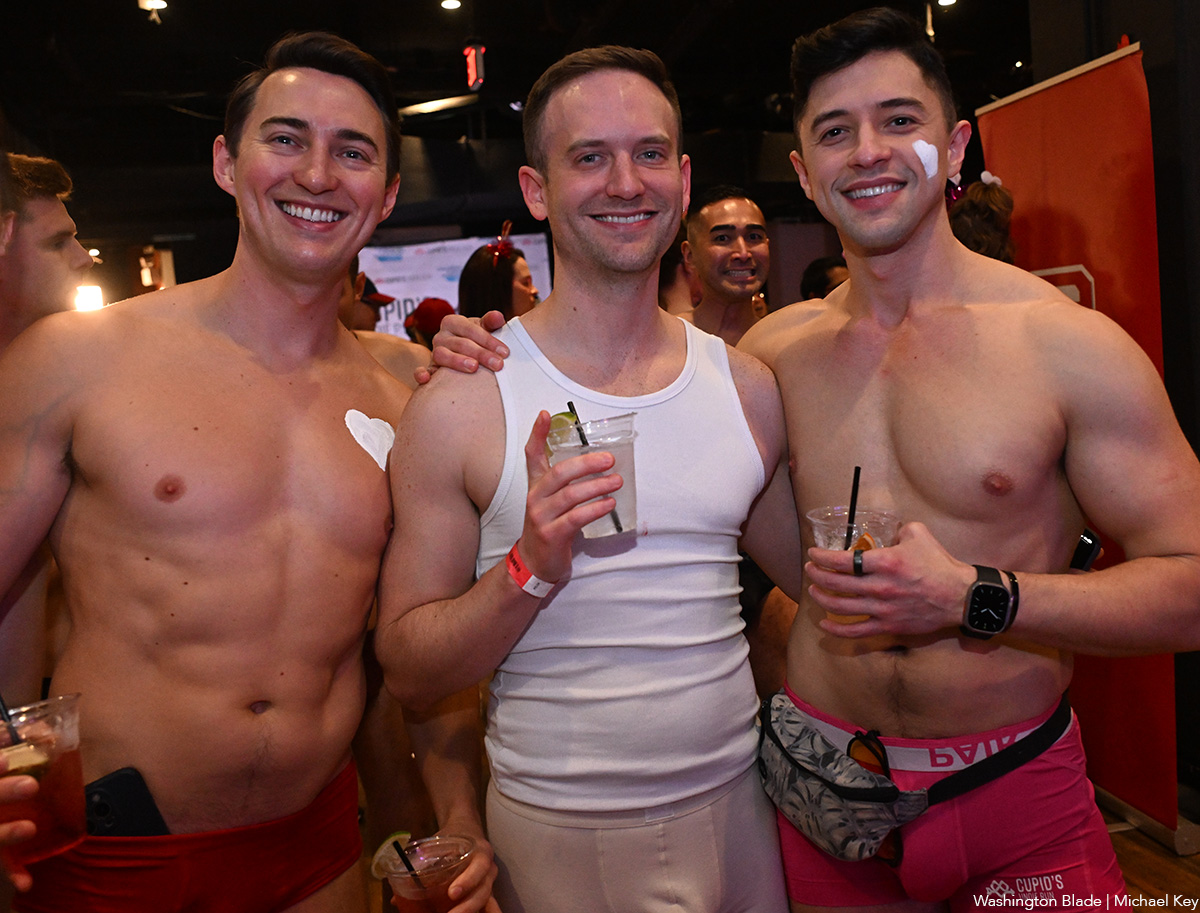
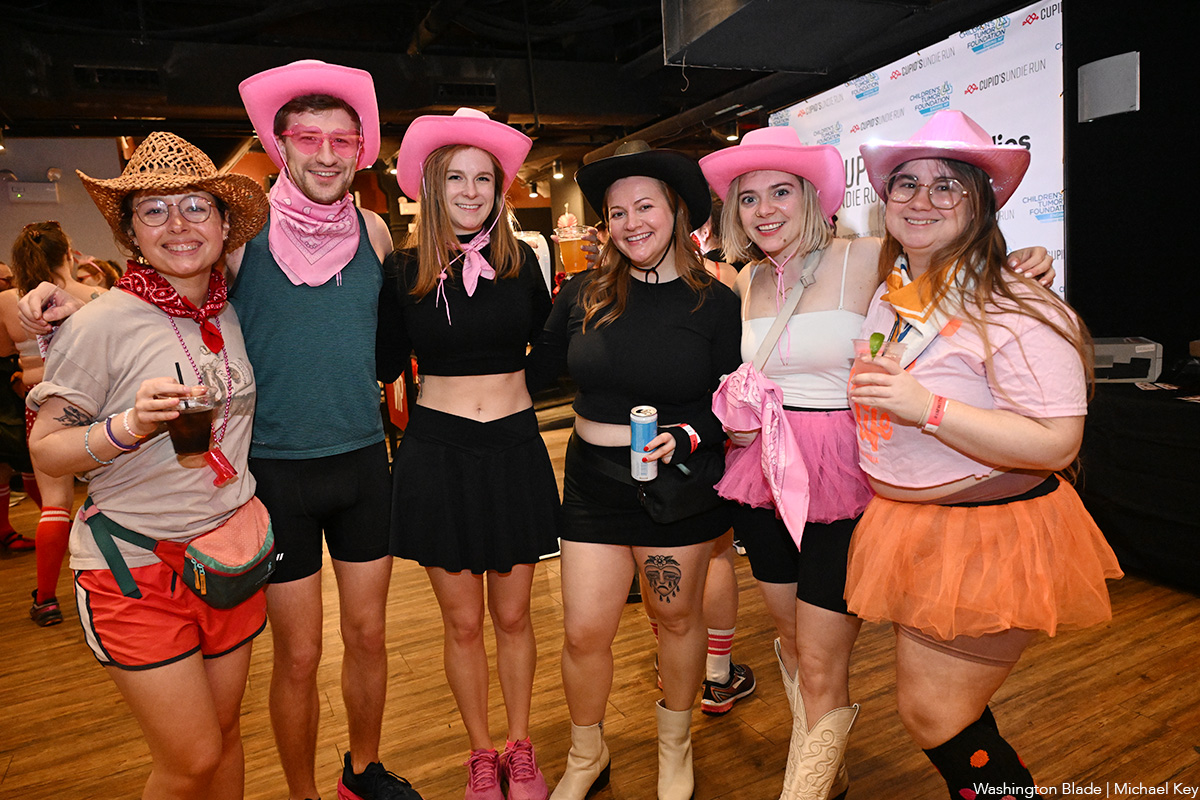
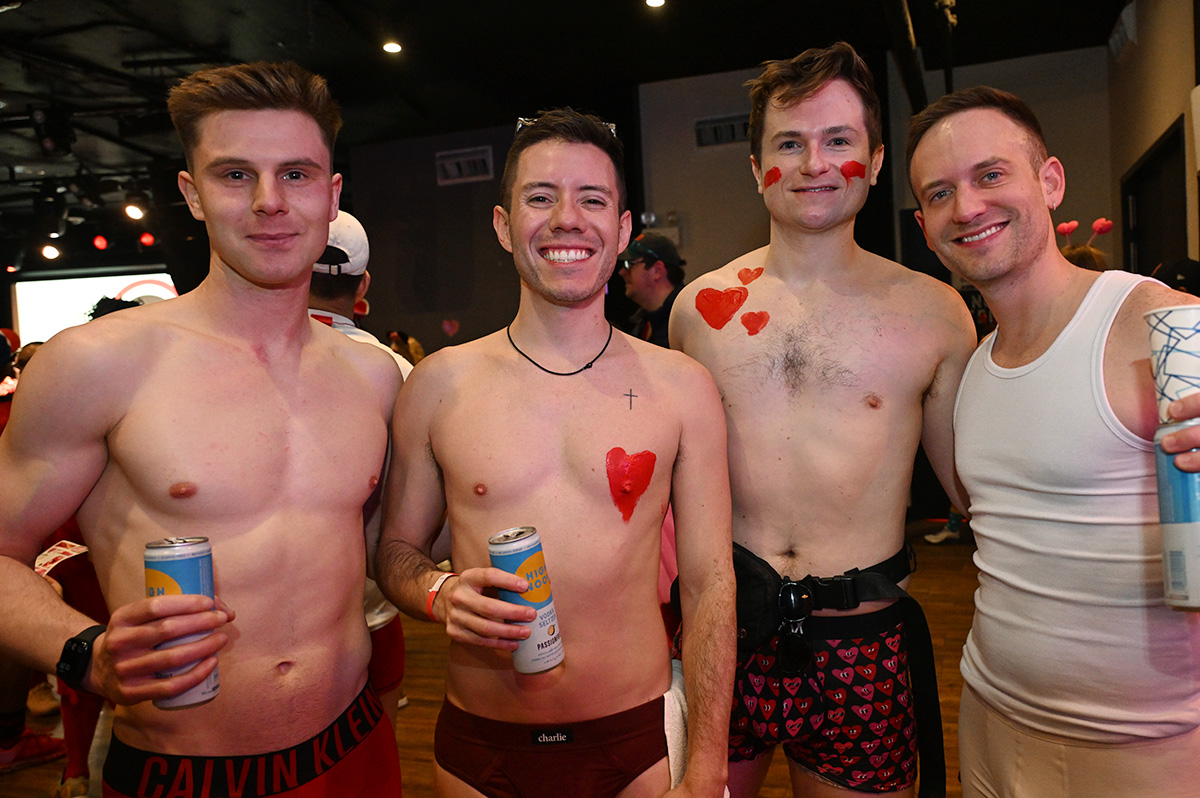
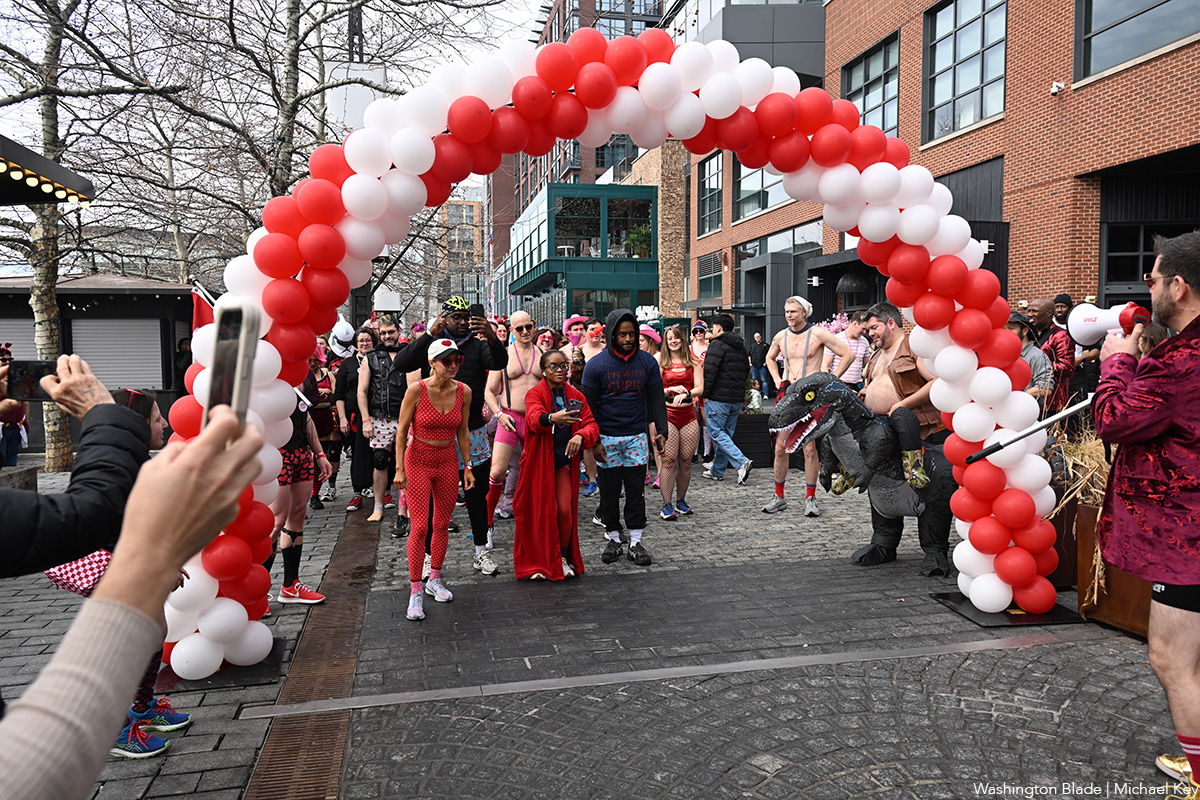
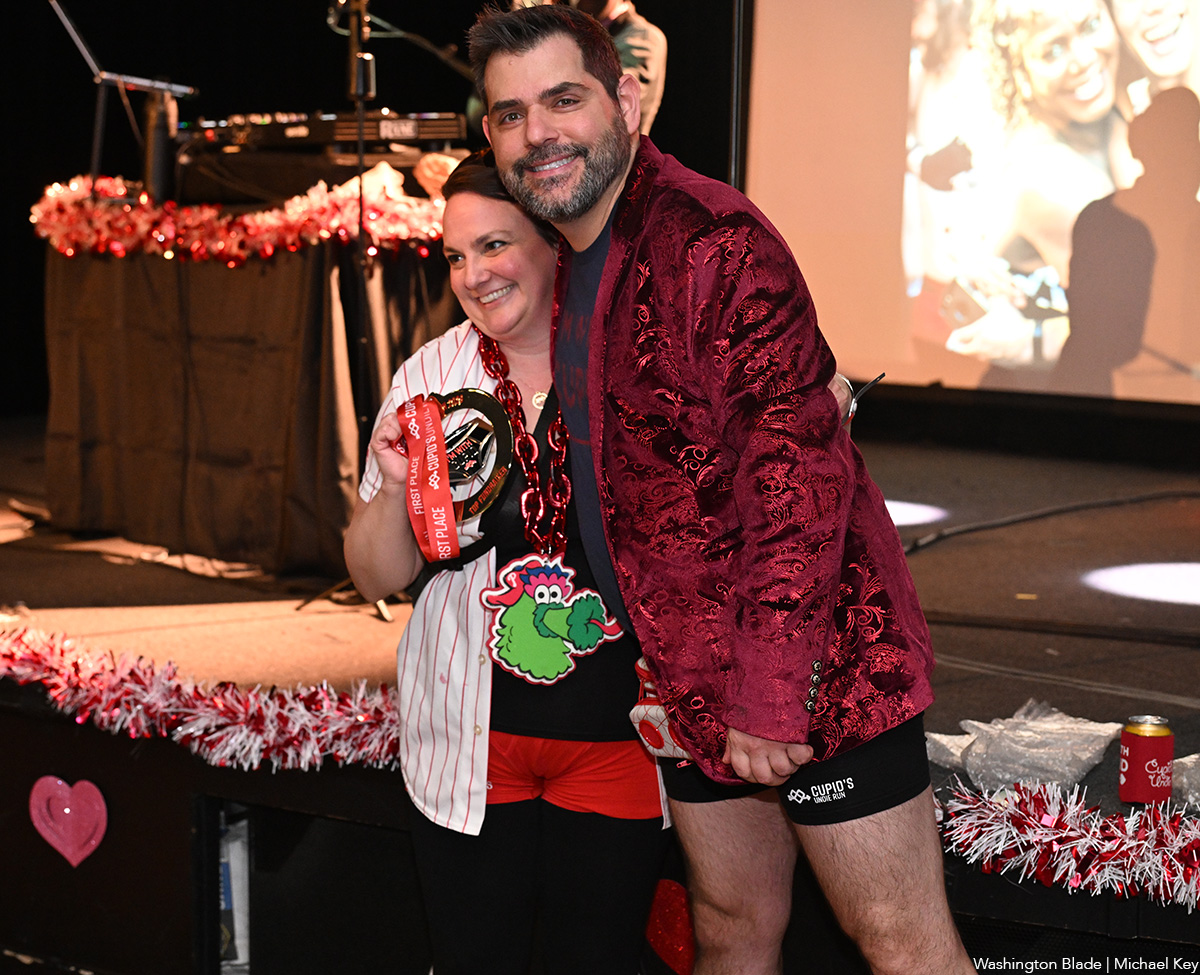
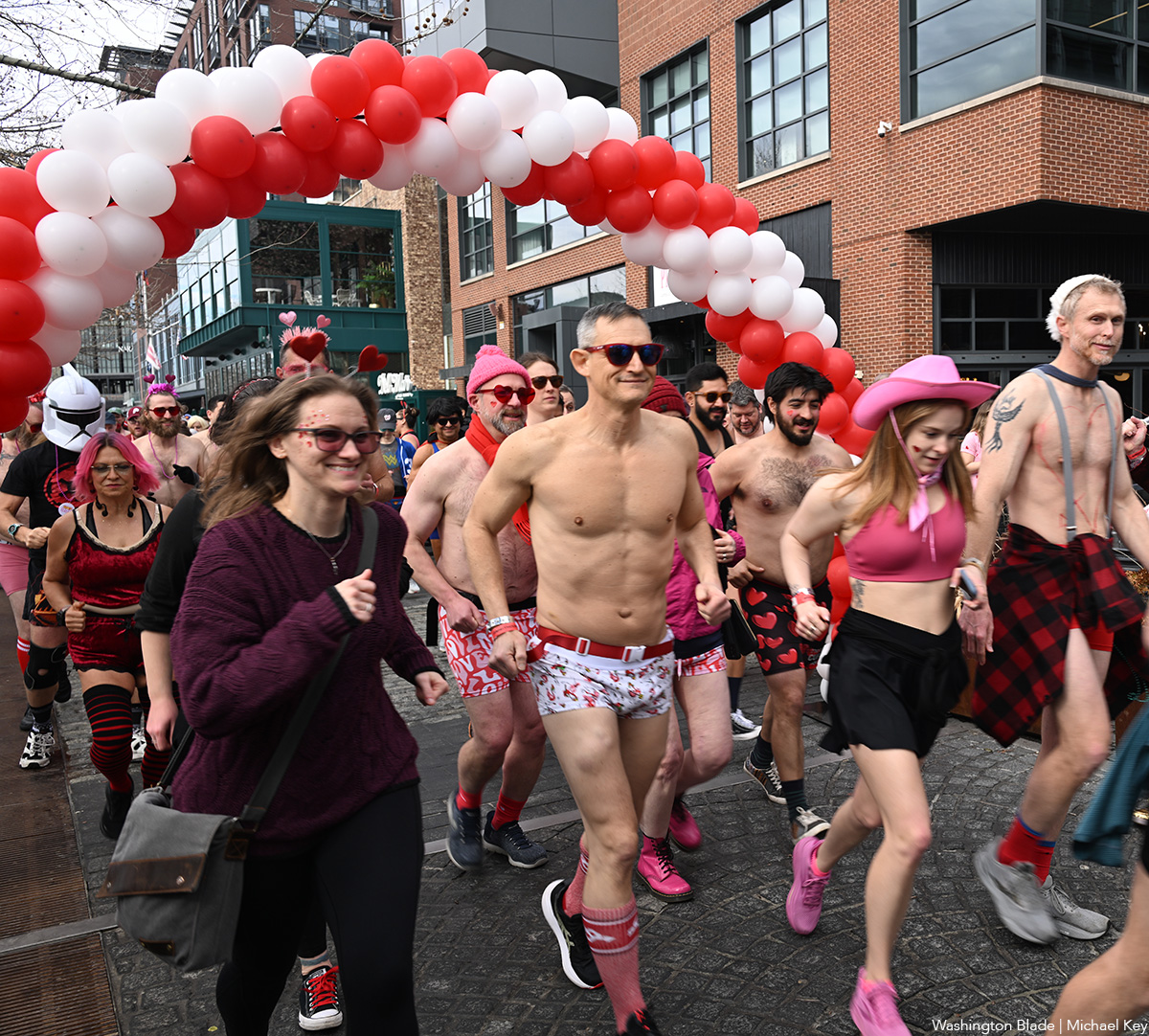
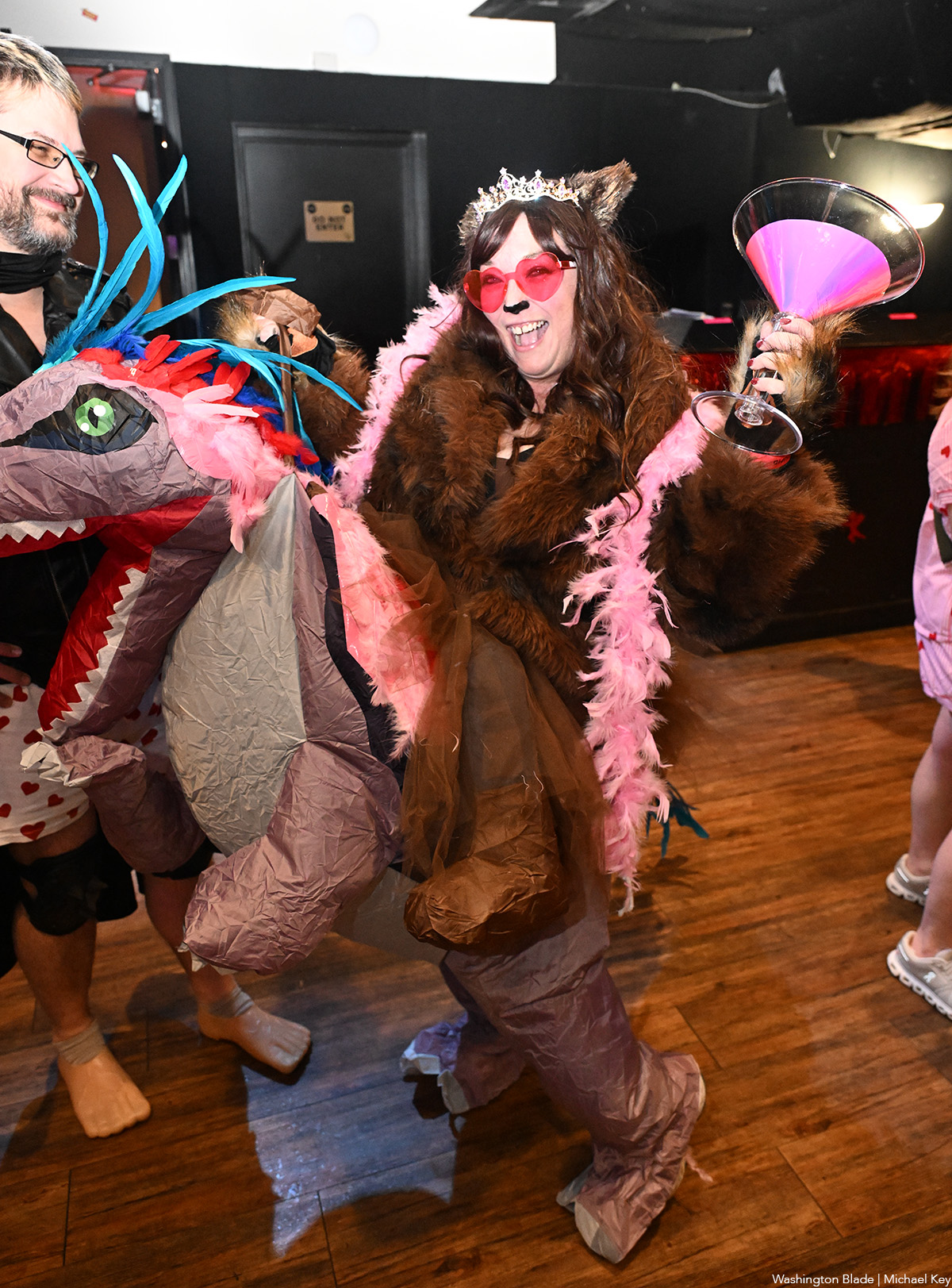
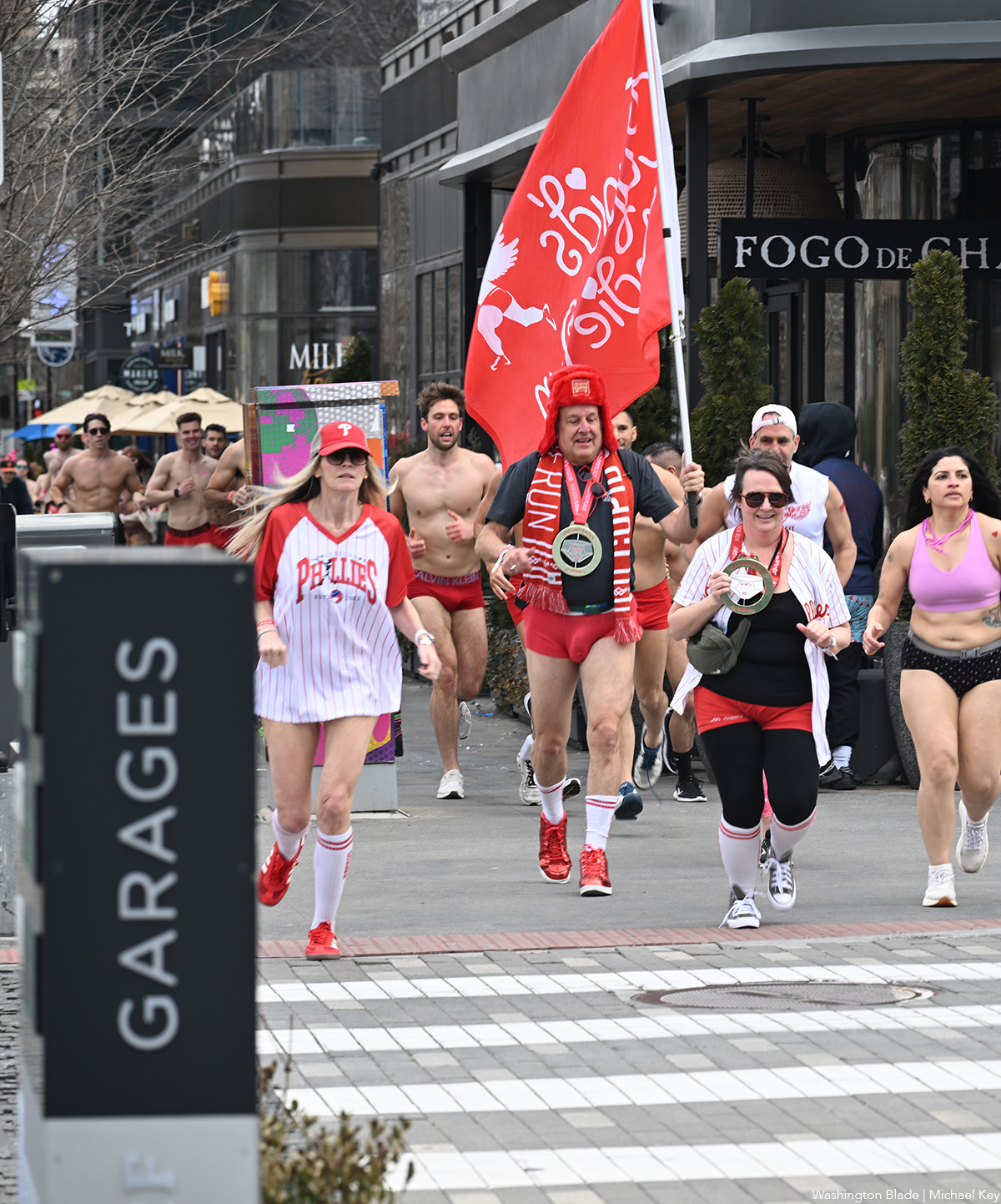
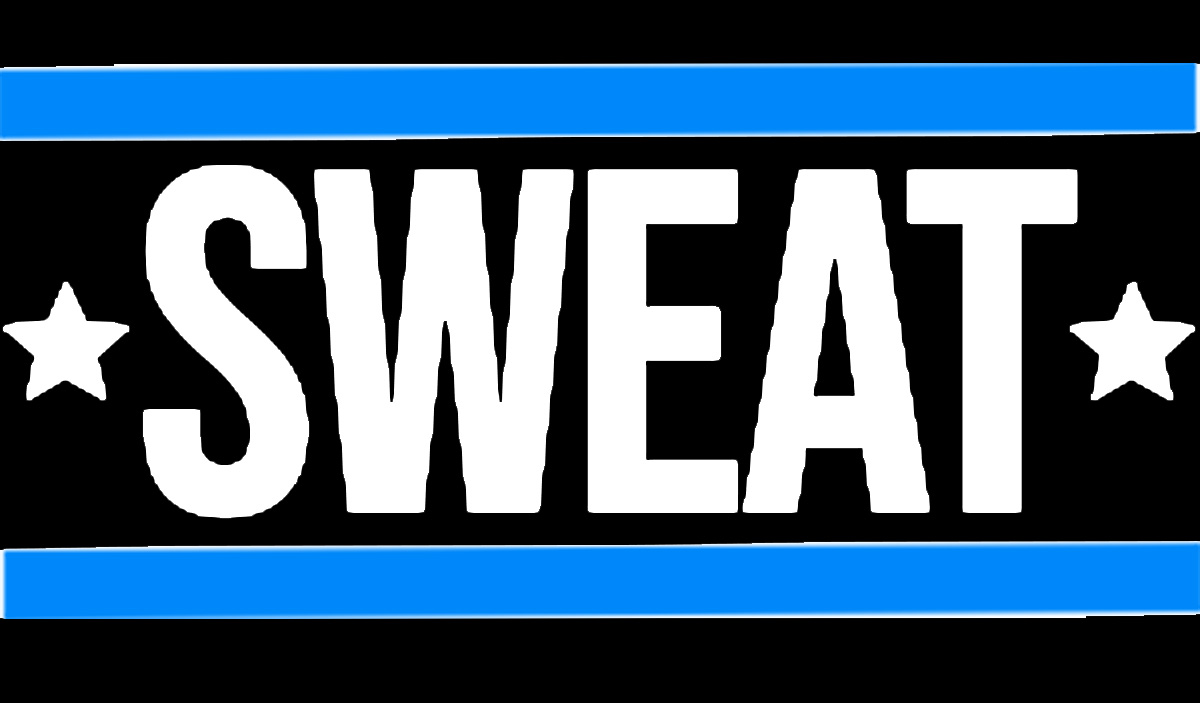
Sweat DC is officially expanding to Shaw, opening a new location at 1818 7th St., N.W., on Saturday, March 28 — and they’re kicking things off with a high-energy, community-first launch event.
To celebrate, Sweat DC is hosting Sweat Fest, a free community workout and social on Saturday, March 14, at 10 a.m. at the historic Howard Theatre. The event features a group fitness class, live DJ, local food and wellness partners, and a mission-driven partnership with the Open Goal Project, which works to expand access to youth soccer for players from marginalized communities.
For more details, visit Sweat DC’s website and reserve a spot on Eventbrite.
-

 Massachusetts5 days ago
Massachusetts5 days agoEXCLUSIVE: Markey says transgender rights fight is ‘next frontier’
-

 U.S. Military/Pentagon4 days ago
U.S. Military/Pentagon4 days ago4th Circuit rules against discharged service members with HIV
-

 Opinions4 days ago
Opinions4 days agoGay Treasury Secretary’s silence on LGBTQ issues shows he is scum
-

 New York4 days ago
New York4 days agoLawsuit to restore Stonewall Pride flag filed

